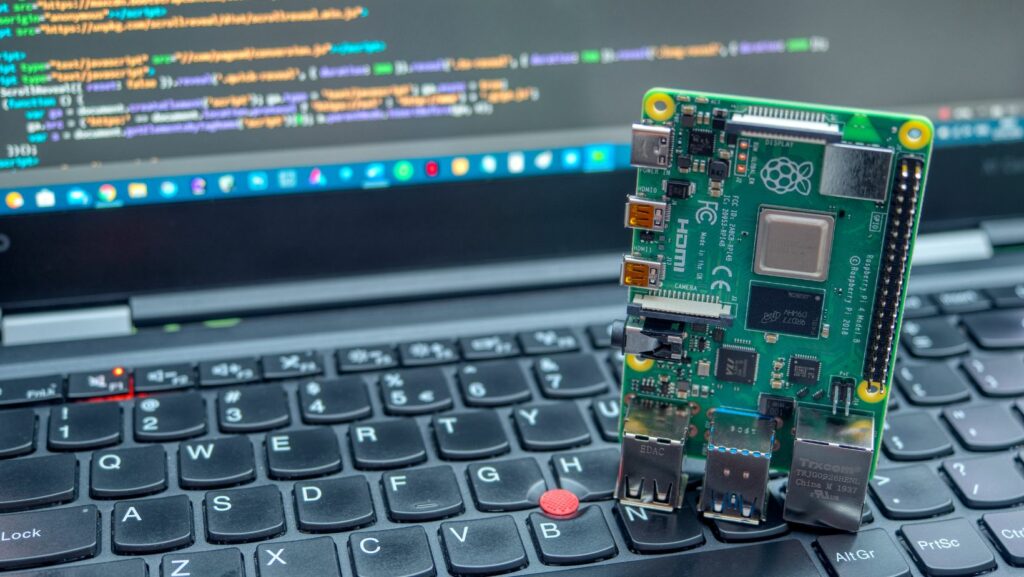There has been an extreme transformation in the internet entertainment sector in 2025. Most technological innovations are revolutionizing content consumption, including blockchain, cloud computing, 5G, artificial intelligence (AI), virtual and augmented reality (VR/AR), and spatial computing.
The meaning of entertainment is also being extended in the digital age through technology, with artificially intelligent-created storylines, personalized streaming channels, and live performances viewed via virtual reality headsets.
Artificial Intelligence: From Creation to Personalization
Generative AI in Content Creation
AI is no longer just a tool for automation; it’s becoming a creative collaborator.
- Tiered generative approaches allow mundane tasks and even artistic enhancements through AI.
- Agentic AI systems that autonomously handle complex indexing and localization.
- AI-powered live monetization via real-time dubbing and content adaptation.
Generative AI also extensively finds its usage in video game development, music, and movie-making. In the creation of CGI assets, scripting, music recording, and even facilitating deepfake-augmented performances, it provides new avenues of creativity with cost and time-effectiveness.
Technological advances enhancing access, security, and interaction are also bringing a swift revolution to internet gambling. The finest online casinos use AI-driven personalization. It individualizes the experience of every gamer. They do so through behavior analytics for game suggestions, bonus optimization, and responsible play encouragement. It can, for instance, dynamically readjust offers as involvement by a gamer declines.
VR and AR: Immersive Worlds and Experiences
VR Headsets and Exclusive Content
Meta’s upcoming “Loma” headset, poised to compete with Apple Vision Pro, features advanced VR capabilities. Meta invests heavily in exclusive VR narratives with studios like Disney and A24, hoping immersive stories drive device sales.
Photorealistic 3D Capture
“Gaussian splatting” is a groundbreaking technique that enables real-time photorealistic, volumetric 3D captures. Adopted by firms like Niantic and Meta, this tech is heralded as a “holodeck moment,” bringing true-to-life virtual environments within reach.
Cloud and 5G: Seamless High-Fidelity Streaming
Cloud-Based Gaming Evolution
Thanks to cloud gaming services like Xbox Cloud Gaming and NVIDIA GeForce Now, AAA games can now be played on low-power devices.

These services offer console-like performance on mobile and online platforms due to 5G’s extremely low latency and large bandwidth.
Superior Streaming
Streaming in 4K, 8K, and spatial audio formats is made possible via 5G. By overcoming hardware limitations and facilitating immersive shared experiences, platforms such as Lookport provide 8K VR concerts that are available via the web or mobile device.
Blockchain and NFTs: New Economies of Ownership
Rights and Royalties
Blockchain’s immutability and transparency are used to secure digital rights, ensure fair payment flows through smart contracts, and curtail piracy. It’s finding applications in music, film, and gaming, granting creators financial protection and control.
NFTs and Virtual Event Tickets
NFTs are being leveraged for digital collectibles, virtual concert tickets, and exclusive in-app content. Companies are launching NFT-based event promotions, enabling fans to own unique digital memorabilia.
Live and Interactive Streaming
Real-Time Engagement
Live streaming has expanded beyond gaming. Instagram influencers, artists, and brands host live events, concerts, Q&As, and product launches, fostering authenticity and connection. Live polls, donations, and interactive overlays make these events more engaging.
Interactive Narratives
Interactive content, like Netflix’s Bandersnatch, permits viewers to influence storylines. New AI-powered tools make such choose-your-own-path entertainment scalable, further blurring lines between games and films.
Spatial and Metaverse Experiences
Virtual Concerts and Shared Events
Companies are hosting VR concerts featuring artists such as Megan Thee Stallion, Tomorrow X Together, and T-Pain. These events stream simultaneously to devices like Meta Quest and Apple Vision Pro.

Platforms like Lookport host live events with spatial audio and web-based VR access.
Persistent Virtual Worlds
Spatial computing and AR/VR enable persistent shared environments, virtual social hubs, game worlds, and brand experiences within the metaverse.
Security, Cyberhealth, and Ethics
AI-Driven Security
Entertainment platforms face rising threats, deepfakes, piracy, and cyberattacks. AI is being used to proactively detect threats, authenticate users, and secure media distribution.
Responsible AI Use
While AI fuels creative growth, it raises ethical issues, deepfake misuse, actor de-aging, and AI-generated content. Transparency, fair representation, and regulations are increasingly critical topics, too.
Sustainability and Efficiency
Green Production and Energy Use
Virtual production techniques (LED walls and CGI) reduce set materials and travel. Energy-efficient cloud services and data centers are being deployed to reduce carbon footprints.
Sustainable Streaming
Adaptive bitrate streaming, edge computing, and renewable-powered data centers are being implemented to minimize environmental impact.
The Creator Economy and Virtual Influencers
AI-Empowered Creators
Generative tools empower creators to quickly produce high-quality video, music, and interactive experiences. Shoppable livestreams, virtual merch, and embedded commerce are redefining monetization.
Virtual Influencers
AI-generated digital personalities are deployed as brand ambassadors and entertainment hosts, offering scalable, customizable on-screen personas.
Conclusion
Internet recreation is networked globally, AI-driven, immersive, and interactive in 2025. It’s no longer passive.
- Cloud gaming with 5G
- Blockchain ownership, VR/AR spatial computing
- AI-generated storylines
- Telepresence via holograms
These are some of the technologies converging to create immersive and personalized experiences. This ecosystem is no less important for equitable use, secure delivery, and moral use. Such innovative platforms shall power the following entertainment revolution. Decentralized virtual markets, concerts, or storytelling with artificial intelligence all further enhance it. Future innovations will be liquid, edge-cutting, and immersive. A virtual stage where imagination meets technology to usher in new art and connections.


